

Two great web sites, The Official Janis Joplin Site From The Janis Joplin Estate, and The Rock And Roll Hall Of Fame were very helpful in preparing my tribute to Ms. Joplin.
Janis Lyn Joplin was born January 19, 1943 and died October 4, 1970. She lived to convey powerful emotion through heart-stomping rock-and-roll singing.
Janis broke with local social traditions during the tense days of racial integration, standing up for the rights of African Americans whose segregated status in her hometown seared her youthful ideals. Along with fellow band beatnik-reading high school students, she pursued the non-traditional via arts and literature, especially music. They gravitated to folk and jazz with Janis especially taken with the blues.
She went from drifter to superstar. She has been called “the greatest white urban blues and soul singer of her generation.”
Discovering an inborn talent to belt the blues, Janis began copying the blues styles of Bessie Smith, Odetta and Leadbelly, as well as the soul styles of Otis Redding, Tina Turner and Etta James. She played the coffee houses and hootenannies of the day in the small towns of Texas. She later ventured to the beatnik haunts of Venice, North Beach and the Village in New York, eventually landing in Austin, Texas as a student at the University of Texas.
She performed folk blues on the coffeehouse circuit in Texas and San Francisco before hooking up with Big Brother - guitarists James Gurley and Sam Andrew, bassist Peter Albin and drummer David Getz - at the suggestion of Chet Helms, a hip entrepreneur and fellow Texan.
The chemistry came as a revelation even to Joplin: “All of a sudden, someone threw me in front of this rock and roll band,” she said. “And I decided then and there that was it. I never wanted to do anything else.”
She found a vital San Francisco community, and was offered the singing position in a relatively obscure group called "Big Brother and the Holding Company." On June 11, 1965, Janis debuted with Big Brother and the Holding Company at San Francisco’s Avalon Ballroom, where they became the house band.
From January 21-23, 1966, she was part of The Trips Festival, a multimedia event featuring performances by the Grateful Dead, Jefferson Airplane and Big Brother and the Holding Company, held at Longshoreman’s Hall in San Francisco. Days later, on February 1, 1966, Big Brother and the Holding Company, with Jefferson Airplane, headline the First Annual Tribal Stomp at San Francisco’s Avalon Ballroom.
On June 17, 1967, Big Brother and the Holding Company perform a show-stopping set on the second day of the Monterey International Pop Festival. Janis smashed through her anonymity with Big Mama Thornton's "Ball and Chain" and the world took note. Her performance, a highlight of the film documentary Monterey Pop, is among the great performances in rock history.
Big Brother played in the Bay area and up and down the California coast, to ever-increasing enthusiasm for their unique brand of psychedelic rock. They initially signed with Mainstream Records, a small outfit that did little promotion, but did produce an album on August 12, 1967. The self-titled debut album by Big Brother and the Holding Company is released on Mainstream Records. It reaches #60. Two singles were released, "Blindman" and "All Is Loneliness."
Janis Lyn Joplin was born January 19, 1943 and died October 4, 1970. She lived to convey powerful emotion through heart-stomping rock-and-roll singing.
Janis broke with local social traditions during the tense days of racial integration, standing up for the rights of African Americans whose segregated status in her hometown seared her youthful ideals. Along with fellow band beatnik-reading high school students, she pursued the non-traditional via arts and literature, especially music. They gravitated to folk and jazz with Janis especially taken with the blues.
She went from drifter to superstar. She has been called “the greatest white urban blues and soul singer of her generation.”
Discovering an inborn talent to belt the blues, Janis began copying the blues styles of Bessie Smith, Odetta and Leadbelly, as well as the soul styles of Otis Redding, Tina Turner and Etta James. She played the coffee houses and hootenannies of the day in the small towns of Texas. She later ventured to the beatnik haunts of Venice, North Beach and the Village in New York, eventually landing in Austin, Texas as a student at the University of Texas.
She performed folk blues on the coffeehouse circuit in Texas and San Francisco before hooking up with Big Brother - guitarists James Gurley and Sam Andrew, bassist Peter Albin and drummer David Getz - at the suggestion of Chet Helms, a hip entrepreneur and fellow Texan.
The chemistry came as a revelation even to Joplin: “All of a sudden, someone threw me in front of this rock and roll band,” she said. “And I decided then and there that was it. I never wanted to do anything else.”
She found a vital San Francisco community, and was offered the singing position in a relatively obscure group called "Big Brother and the Holding Company." On June 11, 1965, Janis debuted with Big Brother and the Holding Company at San Francisco’s Avalon Ballroom, where they became the house band.
From January 21-23, 1966, she was part of The Trips Festival, a multimedia event featuring performances by the Grateful Dead, Jefferson Airplane and Big Brother and the Holding Company, held at Longshoreman’s Hall in San Francisco. Days later, on February 1, 1966, Big Brother and the Holding Company, with Jefferson Airplane, headline the First Annual Tribal Stomp at San Francisco’s Avalon Ballroom.
On June 17, 1967, Big Brother and the Holding Company perform a show-stopping set on the second day of the Monterey International Pop Festival. Janis smashed through her anonymity with Big Mama Thornton's "Ball and Chain" and the world took note. Her performance, a highlight of the film documentary Monterey Pop, is among the great performances in rock history.
Big Brother played in the Bay area and up and down the California coast, to ever-increasing enthusiasm for their unique brand of psychedelic rock. They initially signed with Mainstream Records, a small outfit that did little promotion, but did produce an album on August 12, 1967. The self-titled debut album by Big Brother and the Holding Company is released on Mainstream Records. It reaches #60. Two singles were released, "Blindman" and "All Is Loneliness."
The group was actively courted by Albert Grossman, one of the most powerful entertainment managers of the day. Through his representation, they signed a three-record recording contract with Columbia Records, who bought out Mainstream's rights. Their "Cheap Thrills" album was released in August, 1968 and soon went gold, presenting the hits "Piece Of My Heart" and "Summertime." It topped the charts for seven weeks.
The band was playing to large audiences, for big fees, and the billing now read "Janis Joplin with Big Brother and the Holding Company." On September 29, 1968, “Piece of My Heart,” the lone Top Forty hit by Big Brother and the Holding Company, enters the charts. It reaches #12. On December 7, 1968: Janis Joplin performs for the last time as a member of Big Brother and the Holding Company.
The year 1969 was the year of the rock festival. The largest was the Woodstock Music and Art Fair, held on the weekend of August 15-17, in the tiny town of Bethel, in upstate New York. An estimated crowd of 450,000 attended the event, which featured everyone from Jimi Hendrix and Joe Cocker, to Arlo Guthrie, Jefferson Airplane, The Who, Janis Joplin, Sly and the Family Stone, Ravi Shankar and Country Joe McDonald. If Woodstock marked the apex of the hippie movement in America, the Rolling Stones’ free concert in Hyde Park did the same for England. Held on July 5, the show drew nearly 300,000 people, the largest gathering in England since V-E Day.
Janis formed a new group, oriented more toward blues and released a new album "I Got Dem 'Ol Kozmic Blues Again, Mama" on September 18, 1969. In the U.S., mixed reviews greeted the new sound but in Europe the group was welcomed with loudly enthusiastic praise. She formed a third band, on June 12, 1970, called Full Tilt Boogie Band, which evolved more professional popular sound. Janis felt she'd finally found her unique style of white blues. She was never happier with her new music. They debuted at Freedom Hall in Louisville, Kentucky.
On August 8, 1970, Janis Joplin provides a headstone for the grave of Bessie Smith, her primary influence, who is buried in Philadelphia’s Mount Lawn cemetery.
While recording her next album "Pearl," the title was her nickname, she died on October 4th, 1970, at the age of 27, found dead in her room at the Landmark Hotel in Hollywood, California. "Pearl" comprised nine finished tracks and one instrumental to which she was supposed to have added vocals on the day she died. It was prophetically titled “Buried Alive in the Blues.” Her official cause of death is accidental heroin overdose. Her third album was released posthumously to wide acclaim, launching the popular songs "Me and Bobby McGee" and Mercedes Benz."
“Me and Bobby McGee,” was written for her by ex-lover Kris Kristofferson. A quixotic portrait of a countercultural love affair, sung by Joplin as an affectionate, road-weary country blues, “Me and Bobby McGee” perfectly captured the bohemian spirit of the times. The powerful performances on “Pearl,” including “Move Over,” “Half Moon” and “Get It While You Can,” hint at what might have come from Joplin had she not died at 27.
Janis's albums have gone gold, platinum, and triple-platinum. Her "Greatest Hits" album still tops the charts in Billboard. Several new releases have followed her death, with wide acclaim for her boxed set, "Janis." She was the subject of a 1973 feature documentary, "Janis," and numerous TV documentaries, the most notable being VH-1's Legends program. She is currently the subject of two hotly contested biographical movie projects.
On February 27, 1971, ‘Pearl,’ the album that Janis Joplin was making at the time of her death, hits #1 on the album charts, where it will stay for nine weeks. Her musical success continued after her death. On March 14, 1971, “Me and Bobby McGee,” Janis Joplin’s only Top Forty hit, reaches #1. It tops Billboard’s pop singles chart for two weeks. On July 14, 1973: ‘Janis Joplin’s Greatest Hits’ enters the album charts. It will peak at #22 and sell more than 2 million copies.
Numerous tributes have been given to Janis. On October 10, 1979, ‘The Rose,’ a hit film loosely based on the life of Janis Joplin, premieres in Los Angeles. Bette Midler stars in the lead role. On January 12, 1995, Janis Joplin is inducted, as a performer, into the Rock and Roll Hall of Fame, at the tenth annual induction dinner. The talented Melissa Etheridge is her presenter, and the perfect choice, as she has a similar, unique, raspy, coarse voice, that’s very distinctive. Etheridge is a Joplin fan, who has performed a brilliant cover of Janis’ “Piece Of My Heart.” On April 22, 2001: ‘Love, Janis,’ a musical play based on actual letters sent to family members by Janis Joplin, opens off-Broadway at New York’s Village Theater.
Janis Joplin has passed into the realm of legend: an outwardly brash yet inwardly vulnerable and troubled personality who possessed one of the most passionate voices in rock history. It could be argued that her legacy has as much to do with her persona as her singing. Music journalist Ellen Wills asserted that “Joplin belonged to that select group of pop figures who mattered as much for themselves as for their music. Among American rock performers, she was second only to Bob Dylan in importance as a creator-recorder-embodiment of her generation’s mythology.”
Rock critic Lillian Roxon summed up her influence with these words: “[Janis Joplin] perfectly expressed the feelings and yearnings of the girls of the electric generation – to be all woman, yet equal with men; to be free, yet a slave to real love; to [reject] every outdated convention, and yet get back to the basics of life.”
In the words of biographer Myra Friedman, “It wasn’t only her voice that thrilled, with its amazing range and strength and awesome wails. To see her was to be sucked into a maelstrom of feeling that words can barely suggest.” She was a dynamic singer, who shred her vocal cords on driving psychedelic rockers like “Combination of the Two” and then could deliver a delicate, empathetic reading of George Gershwin’s “Summertime.”
On January 12, 1995, Janis Joplin was inducted, as a performer, into the Rock and Roll Hall of Fame, the ultimate tribute to her music.
I love Janis Joplin’s voice. It’s unique, but, I am reminded of her whenever I listen to Melissa Etheridge, Stevie Nicks, or Bonnie Tyler, female vocalists who share that raspy, throaty, hard-edged sound.
Some of my favorites of Janis’ were “Ball And Chain,” “Cry Baby,” “Down On Me,” “Me And Bobby McGee,” “Mercedes Benz,” and “Piece Of My Heart.”
It’s a shame she passed away so young. Who knows what other sounds haven’t been heard, sounds buried with her. Thankfully, her talents have been recorded, so they can be enjoyed almost 38 years after her death.
Thanks, Janis, for allowing us to appreciate your music, for generations after your passing…















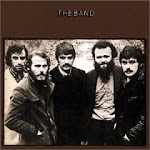



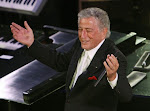














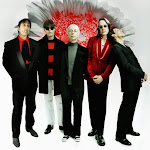
























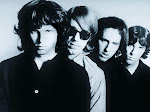





























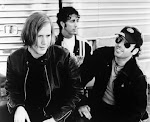

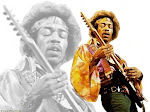









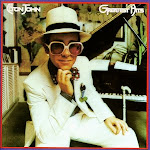




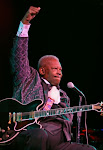


















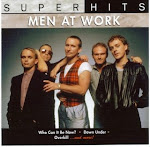%2B-%2BRock.jpg)

















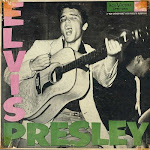



















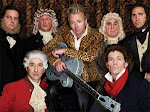




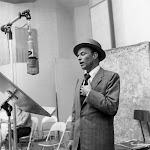















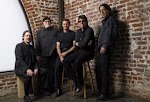




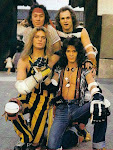














No comments:
Post a Comment